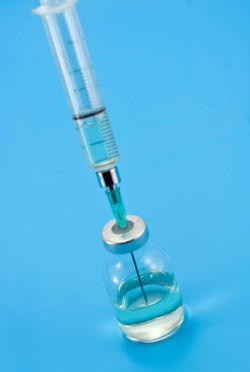EntVac: Developing vaccines against diarrhea caused by Enterotoxigenic Escherichia coli and Shigella
Diarrhea and dysentery are important killers of children in developing countries. These diseases also contribute to malnutrition. Vaccines give a very favorable return on public health investment.
Hovedinnhold
Project page at RCN
Funding:
RCN-GLOBVAC
EU-FP7: STOPENTERICS
Coordinator: Halvor Sommerfelt
Period: 2008-2012
Synopsis:
Diarrhea and dysentery are important killers of children in developing countries. These diseases also contribute to malnutrition. Vaccines give a very favorable return on public health investment, and a polyvalent anti-diarrheal vaccine would greatly improve this investment case. But efforts to create vaccines against the major causes of diarrhea are impeded by insufficient resources and technologies. To address this need, we have assembled a global consortium of leading investigators and centers in enteric vaccinology. We believe that the technology now exists to create one or a few efficacious polyvalent vaccines against the major bacterial enteropathogens ETEC and Shigella.
Our approaches and methods employ the latest powerful "cutting edge" technology and are based on promising, recent data. We will pursue high-throughput saturation mutagenesis ("rapid directed evolution") to develop a toxoid vaccine against the heat-stable enterotoxin of ETEC. We will also leverage the new power of ultra-high-through put gene sequencing to decode five ETEC genomes, an approach not feasible until very recently, and then use these genomes to identify proteins that can be delivered in a vaccine.
We will exploit new data generated at the University of Maryland with regard to both Shigella vaccines and pathogenesis, and create a living but weakened dysentery vaccine candidate that could also protect against ETEC diarrhea. We will further exploit a new approach from Institut Pasteur in Paris to create an injectable Shigella vaccine candidate. In a volunteer study, we will examine to what extent a simple non-invasive technique for saliva sampling can permit assessment of gut immunity.
Our consortium will address critical needs and contribute to Norway's fight against diseases afflicting the world's impoverished children.
